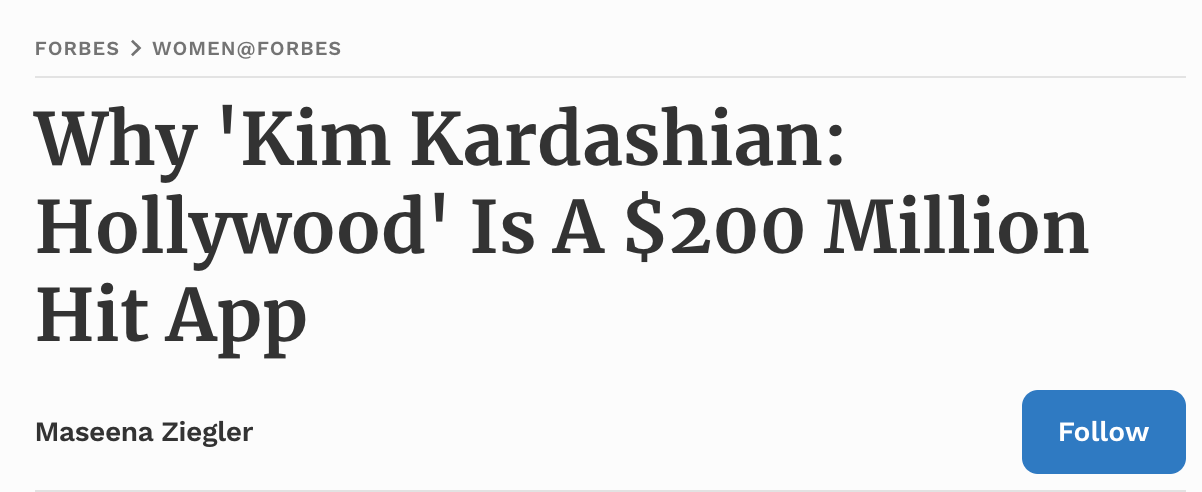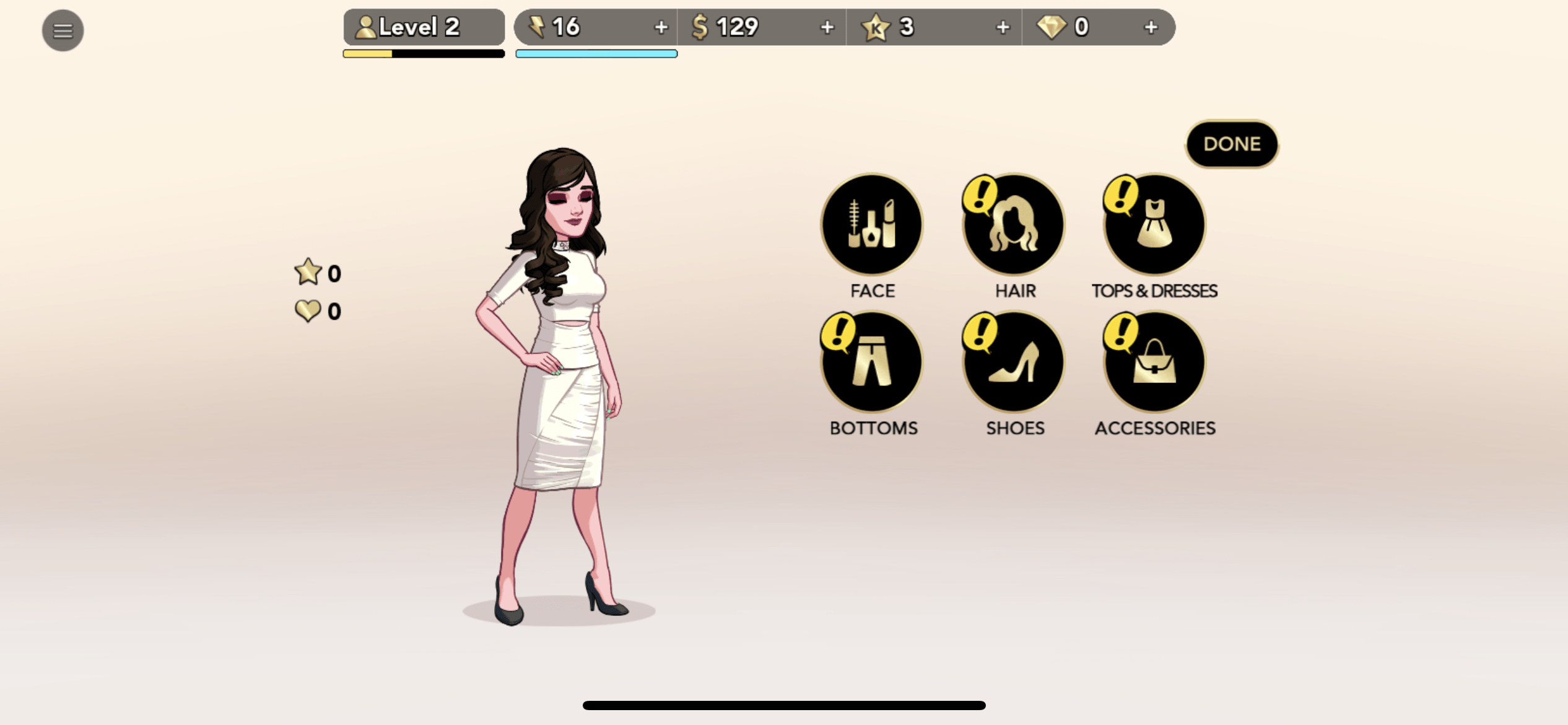Kim Kardashian Hollywood

Overview of Game
In 2014, when I was a freshman in high school, I loved the Kim Kardashian Hollywood game. I wasn’t the only one – the app took over the world, generating 200 million dollars in sales. This mobile game follows you as you make your way through Hollywood, aiming to go from D-list to A-list celebrity. Your mentor, Kim Kardashian, is there to help you along the way. This game positively affirms identity and familiar roles and genre tropes with a fresh spin because it shows nuances of the life of a feminine Hollywood star in a non-mocking fashion In this paper I argue that Kim Kardashian Hollywood was a radically feminist game for its time because of its narrative structure and agency, but the game’s reinforcement of traditional beauty standards hides the its impact.
Note: all quotations are from our reading, Chapter 4 of Play Like a Feminist.
Narrative Structure as Feminist Gameplay
As the reading notes, “a good feminist story—in any medium—is one that is conversational, personal, and relays narratives that surpass the expectations we tend to have of those ushered in to and for patriarchal audiences.” Kim Kardashian Hollywood is an excellent example of this because of its narrative structure. The game embodies non-climactic storytelling by focusing on long-term progress in Hollywood, relationships with other celebrities, and personal growth. The game offers open-ended gameplay and “by not being climax-centric, the video game narrative is free from the heterosexual masculine perspectives that have guided our storytelling expectations for centuries.”
Agency in Game as Feminist Empowerment
Kim Kardashian Hollywood also provides agency to players, resulting in feminist empowerment. The game gives agency to players through self-expression, economic empowerment, and networking and social influence. These factors make the game “a space where the audience is not passive but instead playing an active part in the…story.”
At the beginning of the game, players are empowered to choose their appearance to best represent themselves. I made my appearance match my real-life physical features, but I had many options while building my avatar.
Second, the game gives players agency through economic empowerment. In the game, players can pursue various careers and earn virtual currency to buy luxury items and advance their standing in Hollywood. Thus, players experience financial independence and success as a result of their own hard work in the celebrity/fashion space.
Third, the game gives players agency through networking and social influence. As I discussed earlier, one key focus of the game that distinguishes itself from games that fit into the climactic masculine storytelling arc is the focus on relationships. Indeed, players build relationships with virtual characters, including Kim Kardashian herself. By expanding their social circle and gaining influence, players can progress in the game, which can be seen as an empowering aspect that reflects the importance of networking and building social capital in real life.
Lack of Representation and Promotion of Beauty Standards
While the game does engage feminism in the ways outlined above, it falls short in being truly radical because of its reinforcement of traditional beauty standards. Obviously the game will involve interest in beauty and “girly” things because of the premise involving advancement in Hollywood, however the game has capability to change these standards through narrative, but it does not take advantage of this opportunity. When I was making my avatar, I played around with the options, and while the hairstyles and skincolors were very inclusive, only one very stereotypically “good” body was available. If this was more customizable, the game could not only celebrate girliness, but break the harmful, unrealistic beauty standards that exist in girliness.




